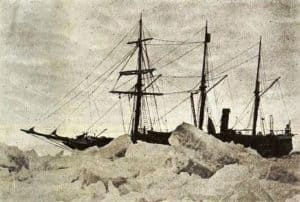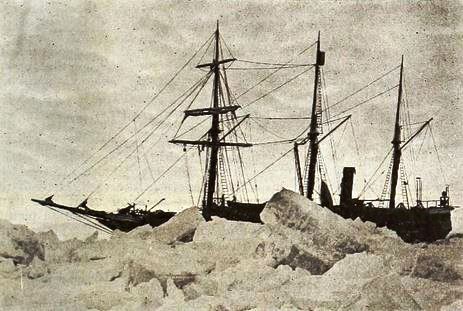 Every day I engage in conversations with friends, family and colleagues and hear certain phrases over and over. They start with “I can’t,” and end with: “handle this,” or “take it anymore,” or “bear another Zoom meeting today.” Many can’t: concentrate on a book, get out of our pajamas, tolerate watching the news, curb our drinking or snacking, sleep at night, or get out of bed in the morning. Clearly, the COVID-19 crisis and quarantine measures are taking their toll.
Every day I engage in conversations with friends, family and colleagues and hear certain phrases over and over. They start with “I can’t,” and end with: “handle this,” or “take it anymore,” or “bear another Zoom meeting today.” Many can’t: concentrate on a book, get out of our pajamas, tolerate watching the news, curb our drinking or snacking, sleep at night, or get out of bed in the morning. Clearly, the COVID-19 crisis and quarantine measures are taking their toll.
Fellow librarians tell me they find refuge in reading lighthearted fare, escaping into fantasy realms and humor. As one who gravitates toward non-fiction though, I find myself drawn in the opposite direction, hearkening back to favorite accounts of suffering and trauma. Ironically, such content lifts my spirits. I draw inspiration from survivors. During this time of isolation, separation, and uncertainty I require reminders that as daunting as challenges seem, I can endure them. People have survived far worse.
In 1914 Ernest Shackleton set off on an expedition to Antarctica with a crew of 27 intrepid explorers. His ship, The Endurance, became trapped in ice, leaving the team stranded for over a year, trapped, hungry, freezing, and unable to contact their families. Alfred Lansing’s Endurance: Shackleton’s Incredible Voyage recounts seemingly insurmountable ordeals that, incredibly, all of the men survived. The Endurance ultimately sank, but 27 men rose from the wreckage against all odds.
Nelson Mandela’s autobiography Long Walk to Freedom had a profound impact on me as well. After reading his story and visiting Robben Island in South Africa, I often envision his tiny cell. When I struggle and feel that “I can’t take it anymore,” I visualize an eight by seven foot concrete box with a mat on the ground and a chamber pot. Mandela spent 27 years in prison as a political dissident during the Apartheid era, subjected to inhumane treatment including solitary confinement and hard labor that eventually ruined his eyesight due to the glare of breaking rocks in a lime quarry. Not only did Mandela survive the ordeal, he went on to become the President of South Africa. When I feel trapped by the walls of my makeshift home office during quarantine, I call up that picture of Mandela’s cell in my memory banks.
Many true tales of endurance and survival come from everyday folks born into unfortunate circumstances, not just fearless adventurers or revolutionary leaders. The 2018 sensation Educated by Tara Westover recounts her strange upbringing riddled with abuse and isolation as a member of a survivalist family. Jeannette Walls’ classic memoir The Glass Castle describes the life of a child traumatized by an upbringing in a nomadic family with an alcoholic father. Augusten Burroughs led a truly stranger-than-fiction life that provided enough material for several memoirs sharing his experience as an abuse victim, and later an addict. He wrote Running With Scissors, about his time in an ill-conceived living situation with his mother’s psychiatrist, Dry, addressing his struggle with alcoholism, A Wolf at the Table, on his traumatic childhood with an abusive father, and my favorite of his oeuvre, This is How: Surviving What You Think You Can’t.
The subtitle of This is How could serve just as well as the subtitle for Endurance, Educated, The Glass Castle, or many other memoirs or biographies. The best true stories tend to recount challenges or crises, hopefully overcome through some combination of hard work, grit, or perseverance, leaving the reader inspired. Beyond the details of how protagonists overcame challenges, they provide life lessons on how to prevail. Westover teaches us to bravely save ourselves and speak our truths. Walls shows that you can escape, even if it means leaving others behind. Burroughs exemplifies the ability to fail, fall, and disappoint, then dust yourself off, reinvent yourself and move forward. In Mandela’s biography he says, “The brave man is not he who does not feel afraid, but he who conquers that fear.” The tale of the Endurance shows what a difference strong leadership makes in a crisis, and also how much the human body can actually endure.
In spite of all of these lessons I’ve learned and taken to heart, I can’t handle much more of this. The loneliness, ambiguity, lack of structure and absence of control imposed by COVID-19 regularly reduce me to tears and insomnia. Things can always be worse, and they can always be better, but we operate within our own realities and frames of reference. I may feel like I can’t bear this, but I will. I don’t have much of a choice after all. In the meantime I will allow myself to fear, feel, and fret, but will try not to lose sight of the fact that we are capable of enduring much more than we ever imagined.
Lydia Sampson is the Assistant Director at the Morrill Memorial Library in Norwood, MA. Look for her article in the May 14, 2020 issue of the Transcript and Bulletin.



